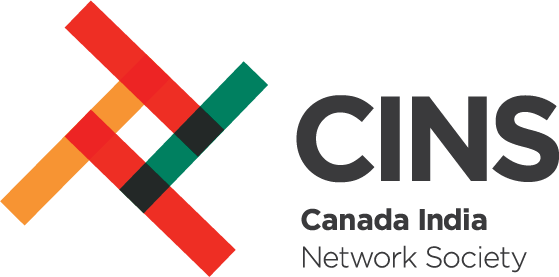Canada India Network Society
Arun K Garg, President and Chair Canada -INDIA Network Society
(Award winning global physician with passion for healthy society. Clinical professor , Lab medicine, University of BC, medical director South Asian health Inst Fraser health and consultant medical biochemist. )
Canada India network Society popularly called CINS (www.thecins.org) started its origin during casual conversation in the office of Dr Mukesh Kumar, director of International affairs of Indian council of Medic al research. The visit was part of, getting to know India health System, as a result of the BC India market advisory report. I was asked by the Government of British Columbia to chair a group of how to build economic and cultural links between two great nations. During this journey, health and building links kept coming up. This conversation with Dr Kumar firmed up to establish a not for profit society in the province and build people to people links in establishing programs and capacity to build healthy civil society. The idea was to develop a nimble, outcome focused network with specific projects and goal. Since its inception in 2020, it has been a very outcome focused group. The main focus was major network colloquiums with participation of leaders in health, education industry, government and community rom both nations. The meetings are organized by Canada India Network society and cohosted by its major partners. The original cohosts of Fraser health nd Simon Fraser continue their support and have been joined by BC Inst of technology, Medtronic Canada, the University of British Columbia Pathology and Kwantlen polytechnic University. Strong support from sponsors, community partner’s academic institutions, and government at all levels, media members, and community has continued. The first conference them was understanding of cardiovascular diseases, major recommendation that there is a need to develop a provincial resource to focus on culturally effective and efficient capacity , South Asian health Inst ( www.fha.ca) at Fraser health became a reality and continues to develop to serve the people of the province. CINI 2014 main focus was Human resources and mental health. 2018 saw realization that best service can be in identifying GAPs in the system nd focus in the areas where most gap exist nd efforts will make the most impact. Though focused on specific areas, tools remain innovative including use of technology and values of coloration, transformation and engagement of the individuals and community remains the focus.
Last four years since CINI 2018 focus is community based chronic care like diabetes, mental health, neurological and skeletal disorders. In here focus is to build capacity in self-empowerment of the individual nd the community through engagement, empowerment, education, enlightmnet . In chronic care cultural efefctivenss a is critical and our network focus on building capacity in this GAP. In keeping with the foundation of collaboration, the society is collaborating with the Inst of health care transformation and sustainability’s (IHSTS; www.ihsts.ca)) diabetes project and more recently joining BC Diabetes Network, a joint initiative of BC Quality Council (www.bcpsq.ca) and the IHSTS. Though focus of the work is culturally effective and efficient capacity for SA population, the principles are universal in nature. Most of the work in this area is focused locally in the province, though active partnership is being sought or joint partners in India. As collaboration CINs is active member of international organization Gapio Global association of physicians of India organ (www.gapio.in) and has internal coloration nd access.
The second focus is to support nd bold leadership and professionals and once again in keeping with values of collaboration opted to collaborate with LEADS Global (www.leadsglobal.ca) using its 5 domains of LEADS, The program is widely used in Canadian health care and its application, when interpreted and terraformed for India context will support health I India. The colorations India partner is CAHO and a brand new educational program is on its way for Indian health providers. Our first India partner is CAHO Consortium of Accredited Health Organization (www.caho.org)
Thus slowly but surely CINs continues its journey to build health civil society, support capacity, which is culturally effective and efficient and based on the individual. For further information, join us on digital media twitter @thecins, Facebook @CanadaIndianetworksociety page, LinkedIn @thecins, and our website www.thecins.org .
